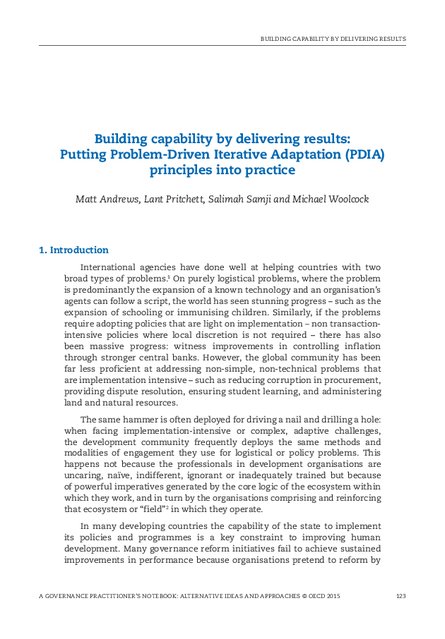
International agencies have done well at helping countries with two broad types of problems.1 On purely logistical problems, where the problem is predominantly the expansion of a known technology and an organisation’s agents can follow a script, the world has seen stunning progress – such as the expansion of schooling or immunising children. Similarly, if the problems require adopting policies that are light on implementation – non transactionintensive policies where local discretion is not required – there has also been massive progress: witness improvements in controlling inflation through stronger central banks. However, the global community has been far less proficient at addressing non-simple, non-technical problems that are implementation intensive – such as reducing corruption in procurement, providing dispute resolution, ensuring student learning, and administering land and natural resources.